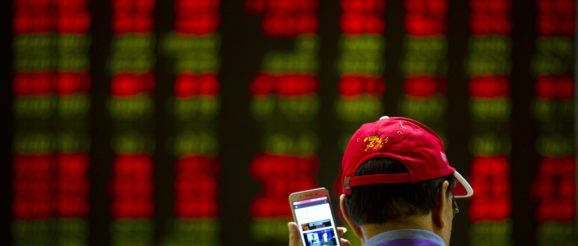U.S.-imposed tariffs on Chinese imports threaten California’s innovation economy

For over a year, the United States has unilaterally imposed a series of escalating tariffs on Chinese imports to pressure China to reform its unfair trade practices and slow China’s rise as a global tech power.
This strategy has been ineffective. More troubling, it places California’s robust economy and innovation leadership at risk.
Foreign companies face significant challenges conducting business in China. They often are required to move servers and infrastructure to the country, and share valuable intellectual property with local agencies with which they must partner. These requirements expose American firms to risk of IP theft, cyber threat, and business disruption.
In addition to addressing unfair trade practices, President Donald Trump’s administration imposed tariffs to slow China as it challenges the United States for global tech supremacy. We must take that challenge seriously.
Since 1991, China has increased spending on research and development from $13 billion annually to over $250 billion annually in 2017. Some financial experts predict China’s innovation spending will surpass America’s by 2020.
China is also trying to dethrone the U.S. in specific emerging technologies. In 2015, it launched the Made in China 2025 initiative, a government program to position the country as a world leader in high-tech fields such as artificial intelligence, robotics, telecommunications, and advanced manufacturing.
The administration may hold out hope that the tariff strategy will compel China to change its ways, but dispute resolution between the countries remains unfinished. China has agreed to minor trade adjustments, but larger changes regarding data localization, IP security, and tech transfers have not been formalized.
Further, Chinese leaders quietly retreated from publicly referencing the Made in China 2025 initiative shortly after the dispute began, but there is no evidence they have abandoned their larger effort.
Unfair trade practices and the rise of a global tech competitor deserve a thoughtful response. But tariffs against China threaten California’s tech industry, which accounts for over $385 billion of our state economy.
Immediately after the U.S. increased costs on Chinese products, China reciprocated with higher tariffs on American tech imports including computers, chemicals, and transportation components. As their products became more expensive overseas, California companies faced lower consumer demand and reduced market share.
The tariffs also made the building blocks of new technologies more expensive. Data-processing machines, printed-circuit assemblies, silicon chips and other core tech components from China are subject to higher costs.
These added expenses undercut the profitability of companies, and make competing in expensive California more difficult. Relocating to lower-cost innovation hubs in other states looks more attractive to cost-conscious businesses.
The financial impact of the Chinese tariffs also threatens California’s innovation lead over global competitors. When a company spends more on imported elements, it spends less on new products and imaginative breakthroughs.
This puts Golden State companies at risk of an innovation deficit, falling behind foreign organizations that have more money to spend on research and development.
If the United States wants to lead global trade and the development of emerging technologies, it must abandon the “go it alone” approach of imposing tariffs which put strain on California’s economy and innovation.
One path forward would be to work with international partners.
In 2016, the U.S. pulled out of the Trans-Pacific Partnership, a coalition of 12 Pacific countries that formed a unified trade bulwark against China. Now, Congress and the Administration should discuss rejoining the Trans-Pacific Partnership.
A unified and leveraged approach to addressing trade and tech disputes with China is a better plan for resolving the current conflict, and will keep the U.S. front-and-center in the global dialogue around international trade and future technologies.
Peter Leroe-Muñoz is vice-president of Technology & Innovation Policy for the Silicon Valley Leadership Group, [email protected]. He wrote this commentary for CALmatters, a public interest journalism venture committed to explaining how California’s Capitol works and why it matters.
